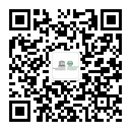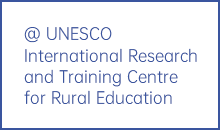Executive summary
The changes in the world today are characterized by new levels of complexity and contradiction. These changes generate tensions for which education is expected to prepare individuals and communities by giving them the capability to adapt and to respond. This publication contributes to rethinking education and learning in this context. It builds on one of UNESCO’s main tasks as a global observatory of social transformation with the objective of stimulating public policy debate.
It is a call for dialogue among all stakeholders. It is inspired by a humanistic vision of education and development, based on respect for life and human dignity, equal rights, social justice, cultural diversity, international solidarity, and shared responsibility for a sustainable future. These are the fundamentals of our common humanity. This book enhances the vision provided by the two landmark UNESCO publications: Learning to Be: The world of education today and tomorrow (1972), the ‘Faure Report’, and Learning: The treasure within (1996), the ‘Delors Report’.
Sustainable development: A central concern
The aspiration of sustainable development requires us to resolve common problems and tensions and to recognize new horizons. Economic growth and the creation of wealth have reduced global poverty rates, but vulnerability, inequality, exclusion and violence have increased within and across societies throughout the world. Unsustainable patterns of economic production and consumption contribute to global warming, environmental degradation and an upsurge in natural disasters. Moreover, while international human rights frameworks have been strengthened over the past several decades, the implementation and protection of these norms remain a challenge. For example, despite the progressive empowerment of women through greater access to education, they continue to face discrimination in public life and in employment. Violence against women and children, particularly girls, continues to undermine their rights. Again, while technological development contributes to greater interconnectedness and offers new avenues for exchange, cooperation and solidarity,
we also see an increase in cultural and religious intolerance, identity-based political mobilization and conflict.
Education must find ways of responding to such challenges, taking into account multiple worldviews and alternative knowledge systems, as well as new frontiers in science and technology such as the advances in neurosciences and the developments in digital technology. Rethinking the purpose of education and the organization of learning has never been more urgent.
Reaffirming a humanistic approach to education
Education alone cannot hope to solve all development challenges, but a humanistic and holistic approach to education can and should contribute to achieving a new development model. In such a model, economic growth must be guided by environmental stewardship and by concern for peace, inclusion and social justice. The ethical and moral principles of a humanistic approach to development stand against violence, intolerance, discrimination and exclusion. Regarding education and learning, it means going beyond narrow utilitarianism and economism to integrate the multiple dimensions of human existence. This approach emphasizes the inclusion of people who are often subject to discrimination – women and girls, indigenous people, persons with disabilities, migrants, the elderly and people living in countries affected by conflict. It requires an open and flexible approach to learning that is both lifelong and life-wide: an approach that provides the opportunity for all to realize their potential for a sustainable future and a life of dignity. This humanistic approach has implications for the definition of learning content and pedagogies, as well as for the role of teachers and other educators. It is even more relevant given the rapid development of new technologies, in particular digital technologies.
Local and global policy-making in a complex world
The escalating levels of social and economic complexity present a number of challenges for education policy-making in today’s globalized world. The intensification of economic globalization is producing patterns of low-employment growth, rising youth unemployment and vulnerable employment. While the trends point to a growing disconnection between education and the fast-changing world of work, they also represent an opportunity to reconsider the link between education and societal development. Furthermore, the increasing mobility of learners and workers across national borders and the new patterns of knowledge and skills transfer require new ways of recognizing, validating and assessing learning. Regarding citizenship, the challenge for national education systems is to shape identities, and to promote awareness of and a sense of responsibility for others in an increasingly interconnected and interdependent world.
The expansion of access to education worldwide over the past several decades is placing greater pressure on public financing. Additionally, the demand has grown in recent years for voice in public affairs and for the involvement of non-state actors in education, at both national and global levels. This diversification of partnerships is blurring the boundaries between public and private, posing problems for the democratic governance of education. In short, there is a growing need to reconcile the contributions and demands of the three regulators of social behaviour: society, state and market.
Recontextualizing education and knowledge as global common goods
In light of this rapidly changing reality, we need to rethink the normative principles that guide educational governance: in particular, the right to education and the notion of education as a public good. Indeed, we often refer to education as a human right and as a public good in international education discourse. Yet, while these principles are relatively uncontested at the level of basic education, there is no general agreement, in much of the discussion, about their applicability to post-basic education and training. To what extent does the right to education, and the principle of public good, apply also to non-formal and informal education, which are less institutionalized, if at all? Therefore a concern for knowledge – understood as the information, understanding, skills, values and attitudes acquired through learning – is central to any discussion of the purpose of education.
The authors propose that both knowledge and education be considered common goods. This implies that the creation of knowledge, as well as its acquisition, validation and use, are common to all people as part of a collective societal endeavour. The notion of common good allows us to go beyond the influence of an individualistic socio- economic theory inherent to the notion of ‘public good’. It emphasizes a participatory process in defining what is a common good, which takes into account a diversity of contexts, concepts of well-being and knowledge ecosystems. Knowledge is an inherent part of the common heritage of humanity. Given the need for sustainable development in an increasingly interdependent world, education and knowledge should, therefore, be considered global common goods. Inspired by the value of solidarity grounded in our common humanity, the principle of knowledge and education as global common goods has implications for the roles and responsibilities of the diverse stakeholders. This holds true for international organizations such as UNESCO, which has a global observatory and normative function qualifying it to promote and guide global public policy debate.
Considerations for the future
As we attempt to reconcile the purpose and organization of learning as a collective societal endeavour, the following questions may serve as first steps towards debate: While the four pillars of learning – to know, to do, to be, and to live together – are still relevant, they are threatened by globalization and by the resurgence of identity politics. How can they be strengthened and renewed? How can education respond to the challenges of achieving economic, social and environmental sustainability? How can a plurality of worldviews be reconciled through a humanistic approach to education? How can such a humanistic approach be realized through educational policies and practices? What are the implications of globalization for national policies and decision-making in education? How should education be financed? What are the specific implications for teacher education, training, development and support? What are the implications for education of the distinction between the concepts of the private good, the public good, and the common good?
Diverse stakeholders with their multiple perspectives should be brought together to share research findings and to articulate normative principles in the guidance of policy. UNESCO, as an intellectual agency and think tank, can provide the platform for such debate and dialogue, enhancing our understanding of new approaches to education policy and provision, with the aim of sustaining humanity and its common well-being.













